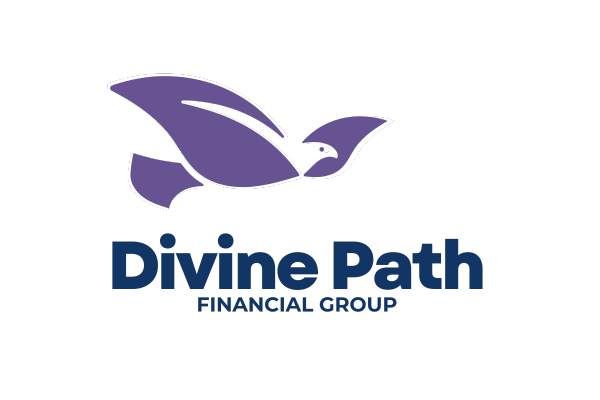Estimated reading time: 6 minutes
Caring for a loved one with dementia presents multifaceted challenges, and one of the most critical responsibilities is safeguarding their financial well-being. As cognitive abilities decline, individuals with dementia are more vulnerable to financial mismanagement, fraud, and exploitation. Implementing proactive measures can help protect their assets and maintain their dignity.
This guide explores essential strategies for protecting a family member with dementia from managing their own finances, emphasizing the importance of establishing legal safeguards such as trusts, wills, and powers of attorney. It also includes insights from economists and links to resources for additional guidance.
1. Recognize Early Indicators of Financial Struggles
The first step in protecting a family member with dementia is identifying early signs of financial mismanagement, which may include:
- Unpaid or Late Bills: Neglecting financial obligations can lead to penalties and service disruptions.
- Duplicate or Unnecessary Purchases: Memory lapses may result in redundant buying.
- Confusion Over Transactions: Difficulty understanding bank statements or unfamiliar charges can be a sign of cognitive decline.
- Vulnerability to Scams: People with dementia are particularly susceptible to fraudulent activities.
Addressing these warning signs early can help prevent significant financial repercussions. For more on financial warning signs and dementia, visit Alzheimer’s Association.
2. Initiate Compassionate Financial Discussions
Approaching financial conversations with empathy is crucial when dealing with dementia. Rather than taking immediate control, engage in open discussions:
- Express Concern: “I’ve noticed some unusual transactions and want to ensure everything is alright.”
- Offer Support: “I’m here to help you manage your finances whenever you’re comfortable.”
Early, open dialogues foster smoother transitions in financial management and ensure the loved one feels supported. The Alzheimer’s Society offers tips on initiating these important conversations.
3. Implement Financial Safeguards
To protect your loved one’s financial interests, you can set up key safeguards:
- Joint Bank Accounts: Joint accounts allow you to monitor transactions while maintaining the individual’s autonomy.
- Automatic Bill Payments: Ensure timely payments of recurring expenses like utilities, mortgage, or insurance.
- Online Banking Alerts: Set up notifications for unusual account activity, such as large withdrawals.
- Limit Credit Access: Consider reducing credit card limits or using prepaid debit cards to prevent overspending.
These safeguards provide protection without fully removing your loved one’s independence. Learn more about financial safeguards at National Institute on Aging.
4. Establish a Durable Power of Attorney (POA)
A Durable Power of Attorney (POA) is a legal document that allows a trusted individual to make financial decisions on behalf of the person with dementia. Setting up a POA ensures that financial matters can be handled efficiently if your loved one loses the capacity to manage their finances.
Key points to consider:
- Act Early: Establish the POA while your loved one can still legally make decisions.
- Choose Wisely: Select a responsible and trustworthy individual to act as the agent.
- Customize Powers: Specify which financial responsibilities the POA covers, from paying bills to managing investments.
Without a POA, families may face costly and time-consuming legal challenges. More details can be found at Nolo.
5. Create a Living Trust
A Living Trust provides more comprehensive asset management, offering several benefits, including:
- Asset Protection: Safeguards assets from potential mismanagement and avoids probate.
- Avoid Probate: Ensures a smooth transfer of assets without the delays and costs of probate court.
- Flexibility: A living trust can be modified to reflect changing needs or circumstances.
A living trust ensures that your loved one’s finances are managed responsibly, even as their cognitive abilities decline. An elder law attorney can help you create a trust that fits your family’s needs. Additional information can be found at the Alzheimer’s Association.
6. The Importance of Wills
A will is crucial in ensuring that your loved one’s wishes for asset distribution are honored after they pass. Even with a power of attorney or living trust in place, a will provides clear directives for the allocation of personal and financial assets.
- Clarifies Asset Distribution: A will specifies beneficiaries and asset allocations, helping to avoid confusion.
- Appoints an Executor: The will designates an executor to manage and distribute assets according to the loved one’s wishes.
- Reduces Family Disputes: A clear, legally sound will can prevent potential conflicts among family members.
An updated will ensures that your loved one’s final wishes are respected and carried out properly. For more guidance, visit LegalZoom.
7. Protect Against Scams and Financial Abuse
Individuals with dementia are particularly vulnerable to financial scams and abuse. To mitigate these risks, consider the following steps:
- Register on Do Not Call Lists: Minimize the number of unsolicited calls by signing up for the National Do Not Call Registry.
- Set Up Fraud Alerts: Work with the bank to establish fraud alerts for unusual account activity.
- Limit Access to Financial Information: Restrict access to financial details to only those who are trusted caregivers or family members.
For further tips on protecting against scams, check out National Institute on Aging.
8. Seek Professional Guidance
Navigating the complexities of financial management for a loved one with dementia may require professional assistance. Engaging with professionals such as elder law attorneys and financial planners can help:
- Elder Law Attorneys: Specialize in legal issues affecting seniors, such as setting up POAs, trusts, and wills.
- Financial Planners: Assist in creating a financial plan that covers long-term care, taxes, and estate planning.
Consulting with professionals ensures that your family’s financial decisions are informed and tailored to your loved one’s specific needs. More information is available at Alzheimer’s Association.
9. Maintain Open Family Communication
Transparent communication among family members is essential when making financial decisions for a loved one with dementia. Keeping all relevant parties informed can prevent misunderstandings and foster trust. Consider scheduling regular family meetings to review financial decisions and document important actions.
Conclusion: Ensuring Financial Security with Dignity
Protecting a family member with dementia from financial mismanagement requires careful planning and empathy. By recognizing early signs of financial decline, establishing legal safeguards like powers of attorney, living trusts, and wills, and working with professionals, you can secure their financial well-being while preserving their dignity.
As economist John Maynard Keynes said, “The importance of money flows from it being a link between the present and the future.” By taking these steps, you ensure that your loved one’s future is protected, even as dementia progresses. For more information and resources, visit the National Institute on Aging.
By implementing these strategies, you give your loved one the gift of protection, security, and peace of mind during a vulnerable time in their life.
Related Links




